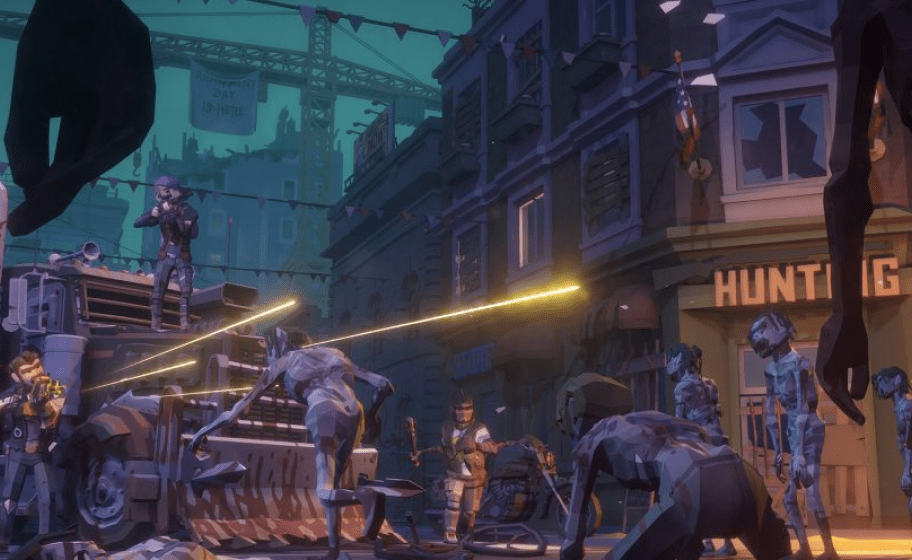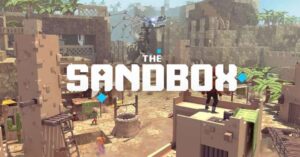
Blockchain and NFT games are at the forefront of a gaming revolution, merging technology with creativity in unprecedented ways. These innovations not only allow players to truly own their in-game assets but also ensure transparency and security in transactions, fundamentally changing how games are developed and played.
By utilizing blockchain technology, game developers can create unique experiences, where items and characters are represented as NFTs, granting players unprecedented ownership rights. This shift opens up new possibilities for gameplay and player interaction, making the gaming landscape more dynamic and engaging.
Introduction to Blockchain and NFT Games

Blockchain technology and non-fungible tokens (NFTs) are revolutionizing the gaming industry by introducing new paradigms of ownership, transparency, and player engagement. At its core, blockchain is a decentralized digital ledger that records transactions across many computers, ensuring that the information is secure, transparent, and immutable. NFTs, built on blockchain, represent unique digital assets, allowing players to own, trade, and sell in-game items like characters, skins, and virtual real estate.The integration of blockchain technology into gaming facilitates the creation and trading of NFT games, enabling players to buy and sell digital assets seamlessly.
Smart contracts, a feature of blockchain, automate and enforce transactions without the need for intermediaries, streamlining the process of acquiring and transferring ownership of NFTs. This technology not only enhances the player experience by fostering a sense of true ownership but also opens new revenue streams for developers through the resale of in-game assets.
Benefits of Using Blockchain in Gaming
The incorporation of blockchain technology in gaming presents several advantages that significantly improve the overall ecosystem. Below are key benefits that enhance both player and developer experiences.
- True Ownership: Players have genuine ownership of their in-game assets. Unlike traditional games, where items are bound to an account and can be lost if the game shuts down, NFTs allow players to retain ownership regardless of the game’s status.
- Transparency: Blockchain provides a transparent record of all transactions. Players can track the history of their assets, ensuring they know the origin and ownership lineage of any NFT they acquire.
- Decentralization: By removing intermediaries, blockchain allows for peer-to-peer transactions, reducing fees and increasing the speed of trades. Players can directly engage in the marketplace without relying on game developers.
- Enhanced Security: With the cryptographic nature of blockchain, assets are secured against hacking and fraud. Players can feel safe knowing their investments are protected.
- Interoperability: NFTs can be designed to work across different games and platforms, allowing players to use their assets in various environments, increasing their value and utility.
“The future of gaming lies in ownership, and blockchain technology provides the foundation for that ownership to flourish.”
Through these benefits, blockchain is not only enhancing the gaming experience for players but also reshaping the industry’s landscape, setting the stage for innovative gameplay and economic models.
Popular Genres of Blockchain and NFT Games
Blockchain and NFT games have rapidly gained popularity, offering unique experiences by blending traditional gaming mechanics with decentralized technologies. The integration of blockchain allows for true ownership of in-game assets, while NFTs introduce a layer of scarcity and uniqueness that enhances gameplay. This section explores various popular genres within the blockchain gaming landscape, showcasing diverse mechanics and innovative approaches across different game types.
Blockchain-Based Board Games
Board games have found a new home in the digital world through blockchain technology, enabling players to engage with classic mechanics while benefiting from decentralized systems. Games like “CryptoGamer” allow players to trade pieces on the blockchain, ensuring that each piece is unique and verifiable. Players can buy, sell, or trade their game pieces as NFTs, bringing an economic layer to the gameplay.
Similarly, “My Neighbor Alice” enables players to own land and assets in a charming, farm-themed environment, enhancing the strategic elements of traditional board games.
NFT Card Games
Card games are one of the most popular genres in the blockchain ecosystem, utilizing NFTs to create unique card ownership experiences. “Gods Unchained” is a prominent example, where players own their cards as NFTs, allowing them to trade or sell their decks on the market. The game’s mechanics focus on strategic play, where players can build customized decks and engage in competitive battles.
Another noteworthy title is “Splinterlands,” which incorporates a play-to-earn model where players can earn rewards through battles while collecting and trading cards as NFTs.
Arcade and Coin-Op Games
Arcade games have also embraced blockchain technology, offering players new ways to earn rewards and engage with game mechanics. Titles like “Crypto Kitties” use blockchain to provide unique digital collectibles that players can breed, buy, and sell. The integration of smart contracts ensures that each transaction is secure and transparent. Games like “Arcade Token” offer classic arcade experiences while allowing players to earn tokens that can be exchanged for NFTs, introducing an element of investment to the arcade format.
Online Games with NFT Rewards
Many online games are now incorporating NFTs as a means of rewarding players. “Axie Infinity” stands out in this genre, allowing players to earn tokens through gameplay, which can then be converted into NFTs representing their unique Axies. This model creates a thriving economy where players not only engage in gameplay but also invest in their in-game assets. Similarly, “The Sandbox” lets players create, own, and monetize their gaming experiences using NFTs, creating a virtual economy built on creativity and collaboration.
Roleplaying Games with NFT Transactions
Roleplaying games (RPGs) are evolving with the introduction of NFTs, enabling players to truly own their characters and in-game items. “Illuvium” combines RPG mechanics with NFT ownership, allowing players to capture creatures and trade them as digital assets. The game emphasizes exploration and strategy while rewarding players through NFT transactions. “CryptoBlades” is another RPG where players can earn tokens and NFTs by defeating enemies and crafting unique weapons, fostering a sense of ownership and achievement.
Video Games Integrating Blockchain Technology
Numerous video games are now integrating blockchain technology to enhance player experiences. Notable titles include “Fortnite,” which, while not fully blockchain-based, explores NFT integrations through collaborations. “Decentraland,” a virtual reality platform, allows players to create, experience, and monetize content and applications using blockchain technology. These games exemplify how traditional gaming can meld with modern technology, paving the way for new gaming experiences.
Mobile Games Utilizing Blockchain
Mobile gaming is also experiencing the benefits of blockchain, with various titles leveraging NFTs for unique in-game experiences. “CryptoPop” is a mobile puzzle game where players can earn crypto rewards through gameplay. “My Crypto Heroes” combines elements of strategy and RPG, letting players collect historical heroes as NFTs. The mobile format allows for a broader reach, engaging players who may not have access to traditional gaming platforms while capitalizing on the rapidly growing interest in blockchain technology.
Future Trends in Blockchain and NFT Gaming

As the gaming industry continues to evolve, blockchain technology and NFTs are poised to leave a significant mark on the landscape. The future of gaming will likely be shaped by how these technologies are integrated into gameplay, ownership, and community engagement. This segment explores the potential impacts, predictions, challenges, and trends that will define the next era of gaming.
Impact of Blockchain Technology on Gaming
Blockchain technology introduces decentralized frameworks that can revolutionize game development and player experiences. The key impacts include:
- True Ownership: Players can truly own in-game assets, which can be traded, sold, or used across different games, enhancing player agency.
- Secure Transactions: Blockchain ensures secure and transparent transactions, reducing fraud and providing a clear history of ownership for digital assets.
- Play-to-Earn Models: Players can earn real-world value through gameplay, encouraging engagement and incentivizing skill development.
- Community Governance: Decentralized governance models allow players to have a say in game development and updates, fostering a stronger community bond.
Predictions for NFTs in Gaming
The evolution of NFTs in gaming is expected to take several intriguing directions. Notable predictions include:
- Cross-Game Interoperability: NFTs will increasingly allow assets to be utilized across multiple games, creating a shared economy and enhancing the value of player investments.
- Enhanced Narrative Experiences: Game developers may leverage NFTs to create unique storylines or quests tied to a player’s unique assets, offering personalized gameplay experiences.
- Increased Gamification of Ownership: NFTs will be integrated into gaming strategies, with players using them as tools to gain advantages or unlock exclusive content.
Challenges for Mainstream Adoption
Despite the promising future, blockchain and NFT gaming face several challenges that could hinder mainstream adoption:
- Regulatory Uncertainty: Governments are still determining how to classify and regulate cryptocurrencies and NFTs, creating uncertainty for developers and players.
- Scalability Issues: Many blockchain networks face scalability problems, which can lead to high transaction fees and slow processing times during peak usage.
- User Experience Barriers: The complexity of wallets and cryptocurrency can deter non-technical gamers from participating in blockchain games.
- Environmental Concerns: The energy consumption and environmental impact of some blockchain technologies, particularly proof-of-work systems, remain contentious issues.
Roadmap for Upcoming Trends in Blockchain and Gaming
The integration of blockchain technology in gaming is expected to unfold in distinct phases. Key trends to watch include:
- Short-Term (1-2 Years): Increased awareness and adoption of play-to-earn mechanisms, with indie developers leading the charge in innovative game designs.
- Medium-Term (3-5 Years): Major gaming companies will likely begin testing blockchain integrations, focusing on NFTs for in-game items and community-driven governance models.
- Long-Term (5+ Years): Full-scale adoption of decentralized platforms where players can seamlessly interact with various games and ecosystems, leading to a fully interconnected gaming universe.
Last Point
As we look towards the future, the potential of blockchain and NFT games continues to expand, promising exciting new developments in gaming. While challenges remain for mainstream adoption, the benefits of transparency, ownership, and innovation are undeniable, ensuring that this trend will shape the future of entertainment in significant ways.
Frequently Asked Questions
What are NFTs in gaming?
NFTs, or Non-Fungible Tokens, are unique digital assets that represent ownership of in-game items, characters, or artwork, allowing players to buy, sell, and trade these assets securely on the blockchain.
How do blockchain games ensure security?
Blockchain technology provides a decentralized and transparent ledger, making it nearly impossible to alter game data or cheat, ensuring fair play and security for all players.
Can I make money from playing NFT games?
Yes, many NFT games allow players to earn real money by trading their in-game assets or participating in play-to-earn models, where gameplay translates into financial rewards.
Are blockchain games accessible to everyone?
While many blockchain games are becoming more user-friendly, some may still require a basic understanding of cryptocurrency and wallets for transactions, which can be a barrier for some players.
What are the main challenges for NFT games?
Challenges include regulatory concerns, environmental impacts of blockchain technology, and the need for more user education to facilitate broader adoption.





